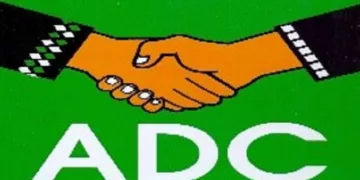The ECOWAS Community Court of Justice has dismissed a suit filed by the family of a murdered investigative journalist, Ahmed Hussein-Suale Diveala, against the government of Ghana for lacking merit.
The Regional Court gave the verdict in Lagos at its ongoing External Court Sessions, held at the Lagos State High Court, Osborne Foreshore Estate Phase II, Ikoyi.
The ECOWAS Court, in its judgment, acknowledged that the journalist’s death was a tragic loss, but held that the evidence presented before it by the family did not support a violation of Ghana’s obligations under international human rights law.
The applicants, Yunus Al-Hassan, the deceased’s biological brother, and his estate, alleged that Ghana breached several fundamental rights protected under international human rights treaties.
They listed the rights as including the right to life, dignity, liberty, equality, health, effective remedies, and freedom of expression, as guaranteed by the African Charter on Human and Peoples’ Rights and the International Covenant on Civil and Political Rights.
The applicants claimed that the Ghanaian government failed to protect the deceased despite known threats against him, conducted an inadequate investigation into his assassination, and did not uphold its obligations under international law to safeguard journalists and freedom of expression.
They also told the court that the 31-year-old investigative journalist affiliated with the Tiger Eye P.I., a media group, was ambushed and fatally shot near his residence in Madina, Accra, on January 16, 2019.
The applicants further claimed that his journalistic work made him a target for hostility, particularly following his involvement in landmark investigations such as “Spirit Child” (2013), which exposed the ritual killings of disabled children, and “Ghana in the Eyes of God” (2015), which resulted in the suspension of multiple judges due to judicial corruption.
However, in its defence, the government of Ghana denied all allegations of negligence and human rights violations.
The state detailed law enforcement actions taken after the murder, including eyewitness accounts, forensic analyses, and multiple arrests; however, it’s stated that witnesses positively identified no suspects.
In its judgment, the ECOWAS Court affirmed its jurisdiction under Article 9(4) of the Protocol on the Community Court of Justice, which grants it the authority to adjudicate alleged human rights violations in any member state.
The Court also held that the application was admissible under Article 10(d) of the same protocol, noting that the applicants were not anonymous and that the matter was not pending before any other international tribunal.
However, the Court rejected the merits of the applicants’ claims, holding that they failed to establish that the Ghanaian state was complicit in or willfully negligent regarding the murder of Hussein-Suale.
While acknowledging that the journalist’s death was a tragic loss, the Court held that the evidence did not support a violation of Ghana’s obligations under international human rights law.
The Court also addressed the applicants’ legal standing, stating that Yunus Al-Hassan (the first applicant) had not submitted sufficient proof of his relationship to the deceased, and the estate (the second applicant) failed to establish legal capacity as a claimant entity.





